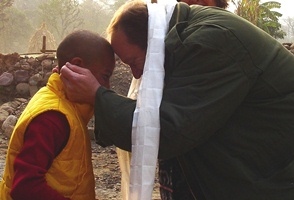
Karmapa on the importance of the monastic Sangha
Kalimpong, 23. November 2015 – In his opening speech at the Consecration Ceremony of the Karmapa Center of Education, Thaye Dorje, His Holiness the 17th Gyalwa Karmapa, addressed the gathering of Rinpoches, monks and devotees from the region, as well as friends from all over the world and welcomed everyone to this auspicious and symbolic opening:
‘First of all, let us thank everyone who has made this occasion possible. More than that, let us thank everyone who has made this environment possible. Being a Buddhist myself, I think of the blessing of Buddhas and Bodhisattvas, and the blessings of our lineage, as the main cause behind this positive environment. And together with this cause, we – each and every one of us – have also played a part in terms of our aspirations and prayers. Due to this combination, we have this wonderful environment.
Over the years, you will see more and more of what is the true aim and intention of this place. As has already been mentioned, the aim of course is to further strengthen the activity of the Buddha dharma, meaning the practice of Buddhism in modern terms – and particularly the monastic sangha. This is the main aim.
I have always felt that there is a real need, particularly in our time, to focus on, contemplate and examine the base, the essential part of Buddha dharma that automatically leads to all of our happiness. Whether we are followers of the Buddha dharma or not does not matter. As long as we are here in this world, as long as we are here as a human being, we all have a sense of longing for happiness, longing for peace, longing for truth, longing for understanding. There are so many causes for happiness to be experienced. We as Buddhists very much feel that the practice of the Buddha dharma is the principal cause of our happiness. Therefore, we are doing our part in this world not just for the benefit of humankind, but for all sentient beings.
What we are trying to emphasize here is that, through this simple education center, we will be able to somehow strengthen the monastic sangha. In many ways it might seem like a novelty, it might seem like a fiction. But it is possible.
I must admit that it is a bit of an experiment, it is a bit of a fantastic idea, simply because from the birth of Buddhism, which was over 2500 years ago, until now, the Buddha dharma has survived through none other than the quality of the monastic sangha. And that tradition, that system has continued over the course of time until now in a very traditional manner. Suddenly, to come up with this idea – that we could actually help the monastic sangha through a mere school – sounds extremely fantastic. So therefore, the result is something we will have to see, ‘result’ not as something solid, ‘result’ in terms of whether what we will try to do here could help lengthen the life of the monastic sangha. That’s the aim.
I very much appreciate everyone being here and giving us your attention, and your keen interest in supporting this project in every way. For that you have my full gratitude, gratitude in terms of offering my prayers, my deepest aspirations, so that the support that you have given here is not wasted, that the support that is given here will bear wonderful fruit. This, of course, is none other than the development of a proper monastic sangha.
The monk body that we have here is the result of a lot of hard work of the past generations, of great beings, great masters, and great devotees of the Buddha dharma. And in a way, if you really look at this monk body that we have here, as well as around the world, it is possible that in time, this body might become more and more reduced, and therefore even the Buddha dharma itself might become more and more of a ‘fantastic idea’ as I said earlier.
So therefore, we need to somehow put our energy, put our thoughts together to make sure that this monk body does not fade away in time. If we are able to do this then the cause for our happiness will remain. If not, then it may be quite difficult. It might sound strange to connect the two – the strengthening of the monastic sangha and our happiness.
I think the simplest way to connect them is by understanding the following: According to the Vinaya, as long as there are four monks, this is the minimum number required for there to be a monk body. If there are more than four monks then of course the sangha is even stronger.
When we consider this and look at the current situation, at the moment we are enjoying wonderful times. No matter how much of a degenerate time we think we are in, nevertheless, we are still very fortunate to have monk bodies around or in our lives. So what is the connection with happiness?
When one enters a monastic sangha, then one actually has, logically, the time, the space to truly investigate the meaning of the Buddha dharma, or what it means to have compassion and wisdom. It gives ample time, room and space to do that. Otherwise, without the monastic environment, no matter what kind of perfect society we have, somehow due to our various responsibilities that we have within our society, somehow it stops us from actually truly realising what it all means. Therefore, having a monastic sangha allows many of us actually to truly tap into the meaning of Buddha dharma, and therefore it helps us to accumulate what is most essential in our lives, called merit.
The ones who enter the monastic sangha accumulate immeasurable merit. Those who support them also accumulate an equal amount of merit, simply by rejoicing and supporting them. If this is lost, then somehow we have no real, substantial source of merit. And on top of it, if the source of merit is lacking, then automatically the source of wisdom is lacking as well, so therefore through that chain reaction we will increasingly lose the sense of compassion and wisdom. If that is lacking, then of course it leads to unhappiness, or unrest, or any form of unpleasant experiences or feelings. And then on top of it, it builds and builds and builds to a point where we can no longer differentiate between many things.
For example, we are no longer able to differentiate between compassion and attachment because they appear too similar in many ways. In this way, then all kinds of social order or social justice can topple. The difference between virtuous and non-virtuous, right and wrong, proper and improper – all of those will be lost. A word that I normally use is ‘decency.’ If there is no monastic sangha, eventually it will lead us towards a path where there is simply no decency at all in the human world. If that happens, then we are looking at a very bleak future.
So therefore, if we have a lack of understanding of the benefit of having a monastic sangha, we must take the time to learn it. It doesn’t mean that we suddenly have to wear a robe and shave our heads, but at least we can take the time to reflect and come to terms with what it means to become ordained. If we do that, I think there is great virtue and I would like to ask everyone to reflect on this. If you have an understanding, then try to offer this kind of environment, offer your support, offer the encouragement that everyone needs. Particularly to the youth, because the future generations of the monastic sangha will highly depend on none other than the youth.
Particularly in our Himalayan regions, we are very much connected with the Buddha dharma, with its history, and so we actually know its value. Of course, as I said earlier, sometimes due to a number of reasons, we might be lacking in certain types of knowledge, but most of us know the history, we know the value of having a monastic sangha in our lives.
Therefore, please take some time to reflect on all this, and encourage the youth, if you see them express an interest, if you see sparks in them that they wish to explore more, that they wish to see what it means to have the luxury of time to reflect on the practice of compassion and wisdom. And if we do this, then not only will we experience happiness and peace right now in this life, but in many ways we help secure the happiness of future generations as well.
I know that I have said a lot, without a proper introduction or proper order, but I felt it was important to put forth one of the main reasons why this place was founded.
So now, let’s take this moment and every moment of our lives to do our very best, to learn the values and the causes of our happiness. Thank you so much.’
Gallery Inauguration 11/2015
KCE Volonteers from all around the globe



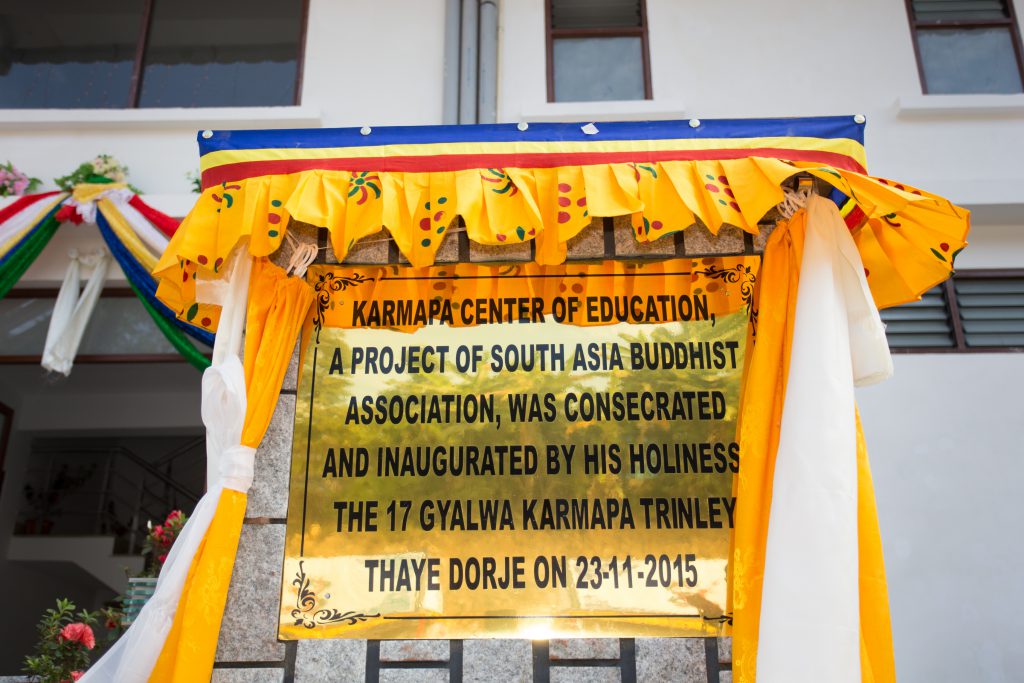
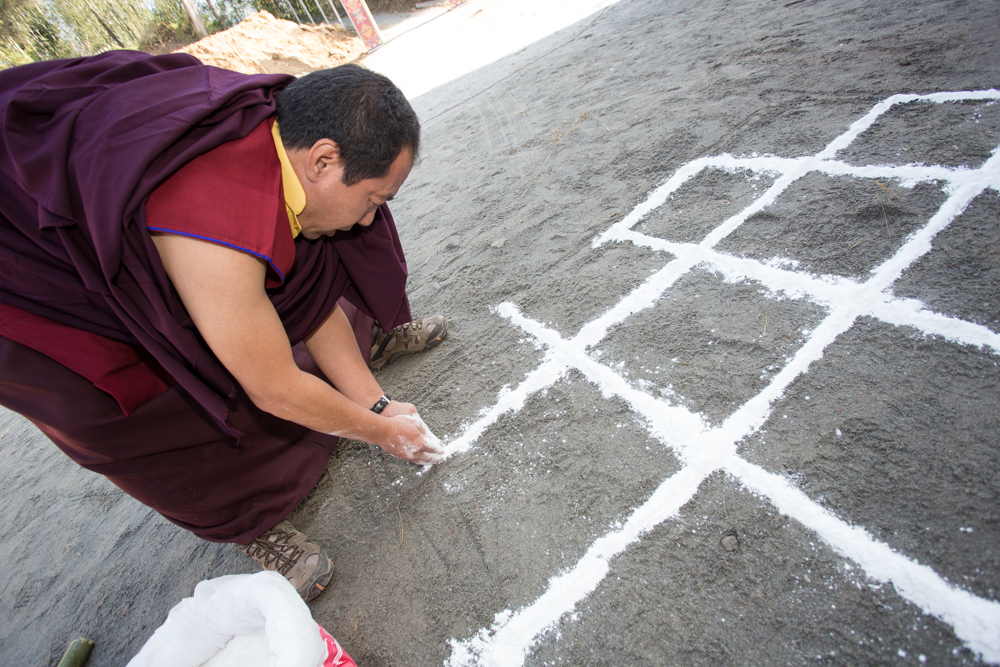



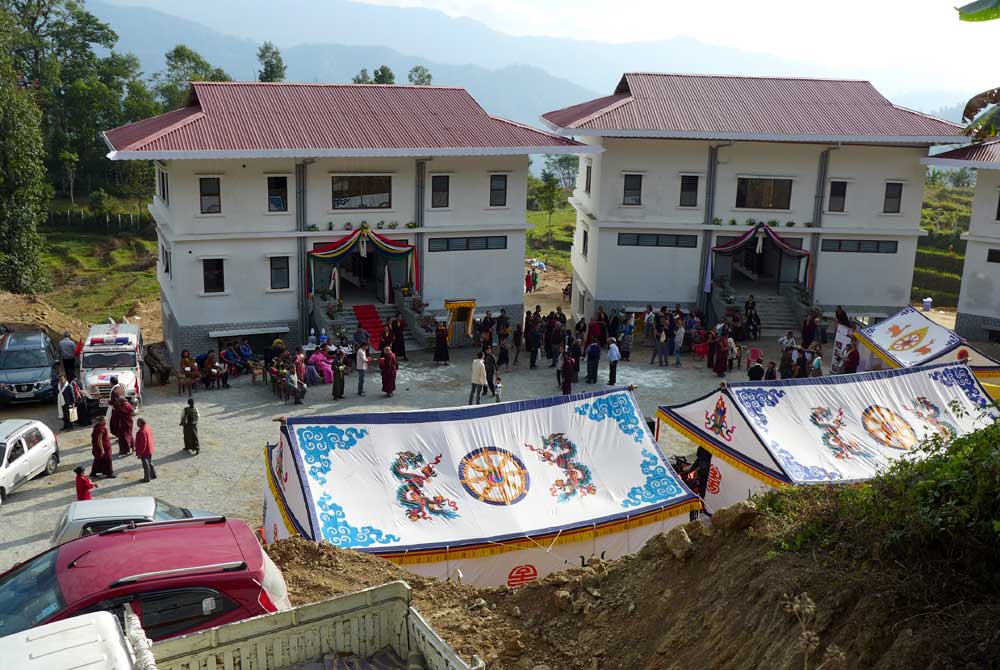

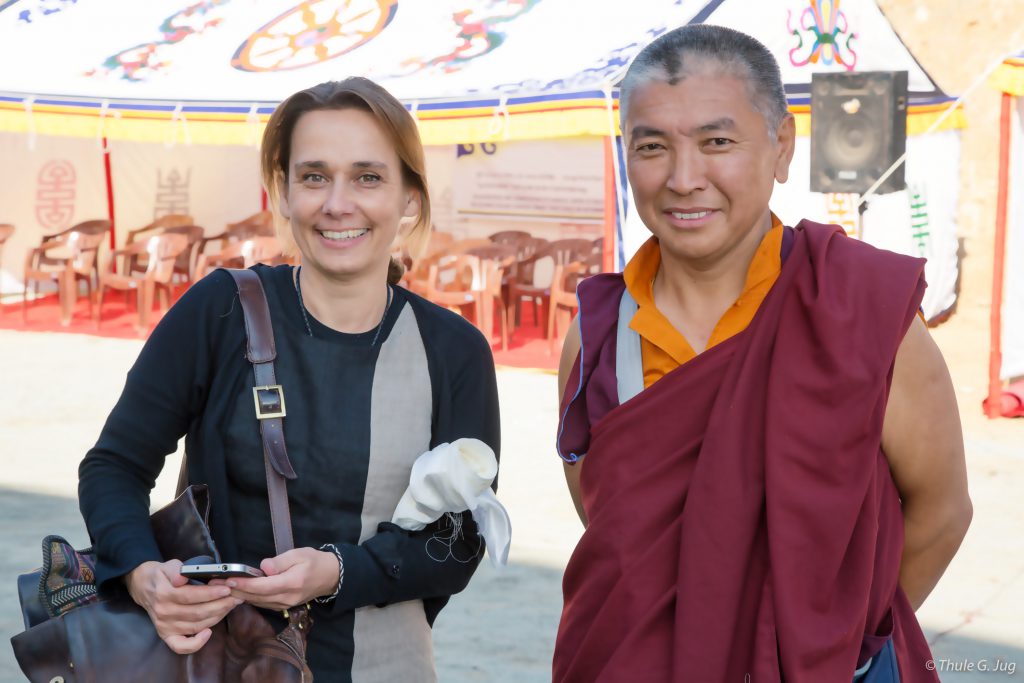
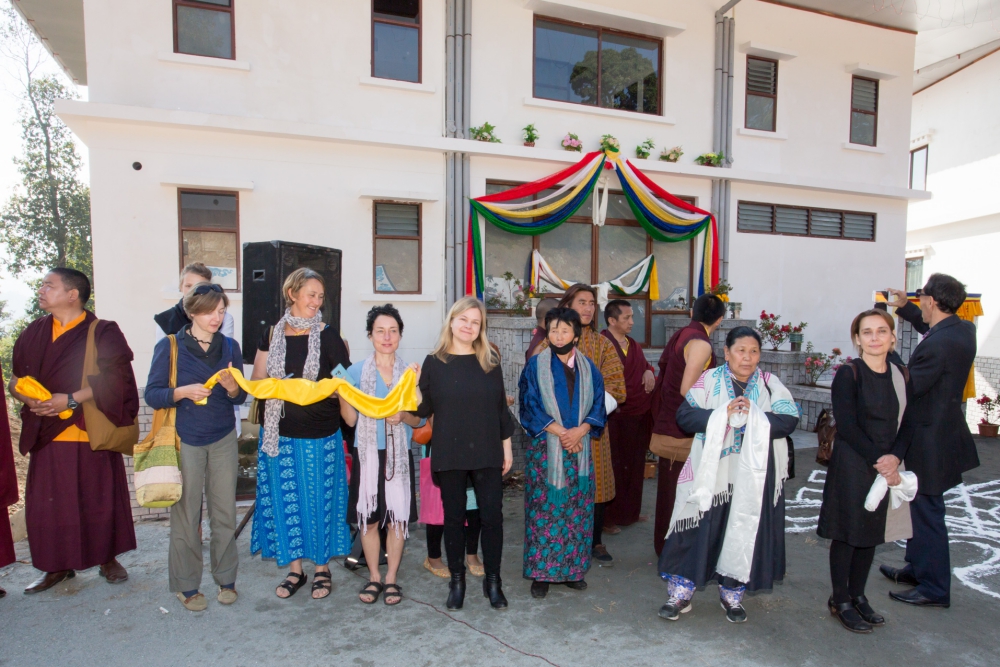

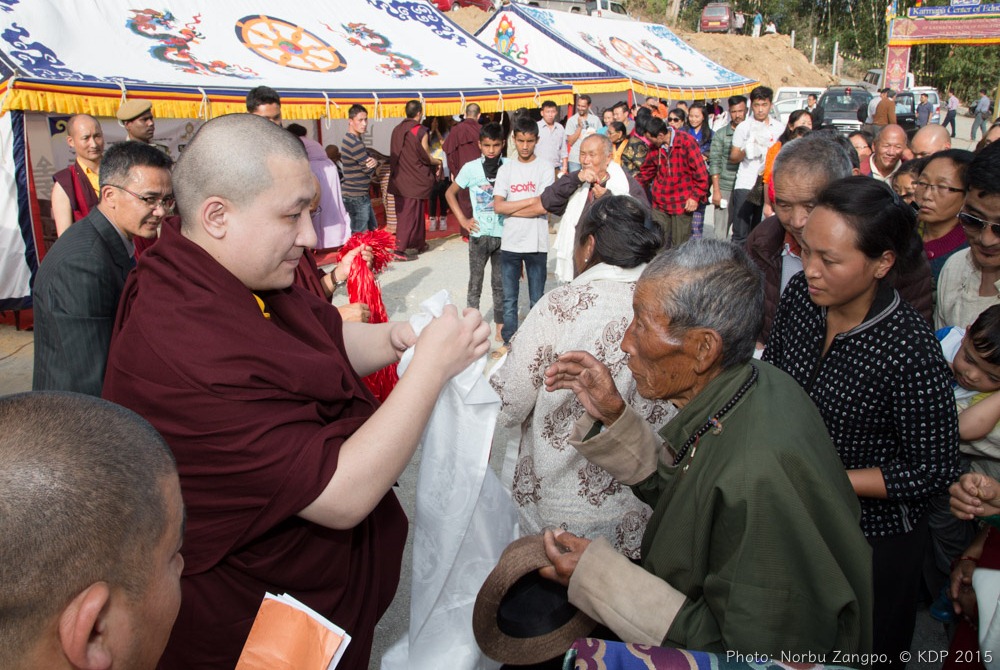

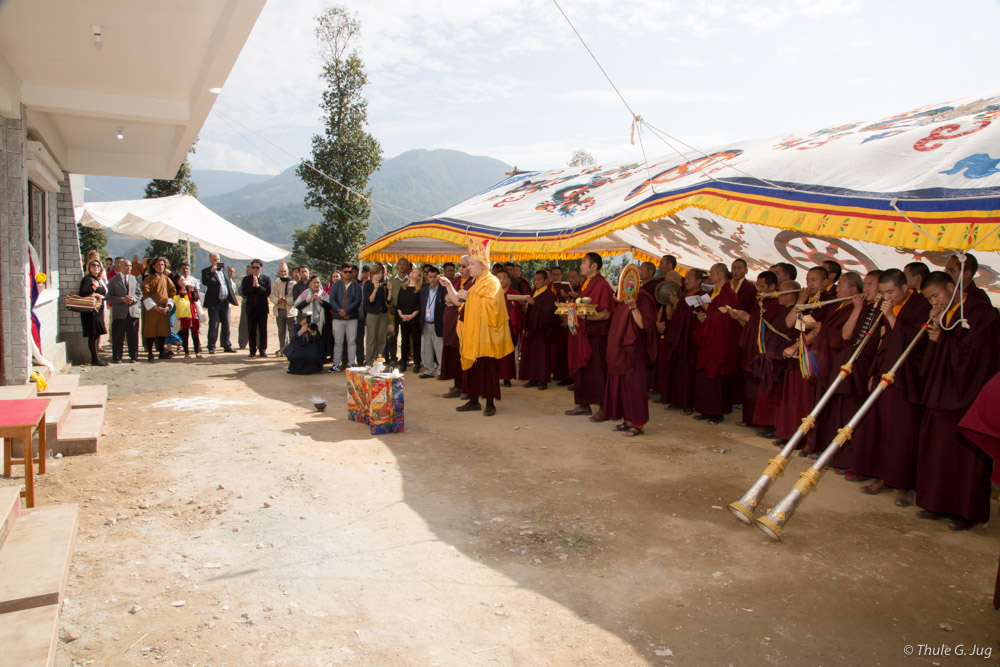
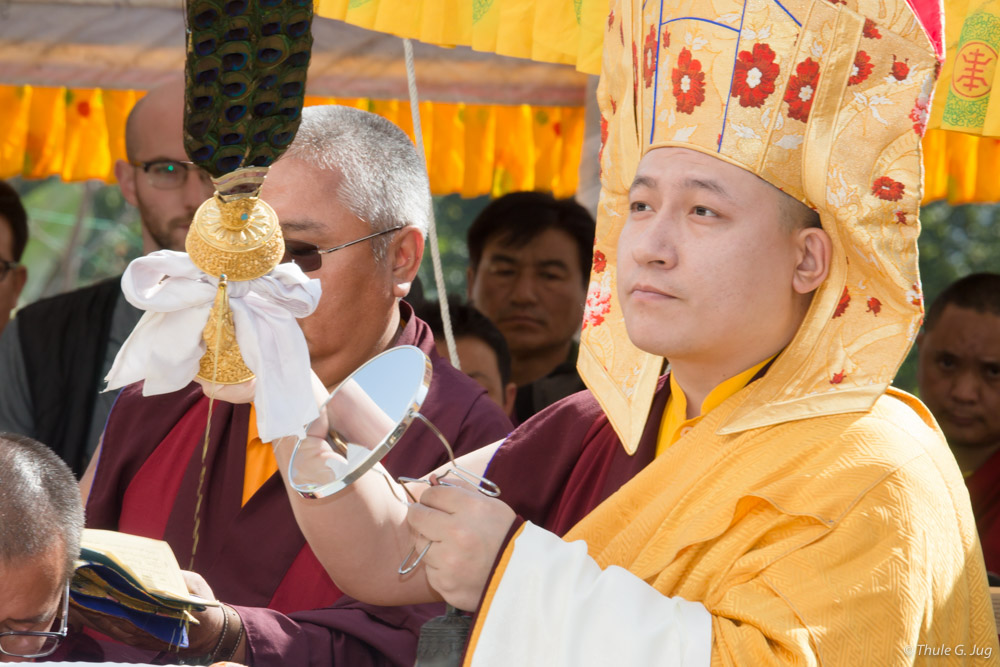

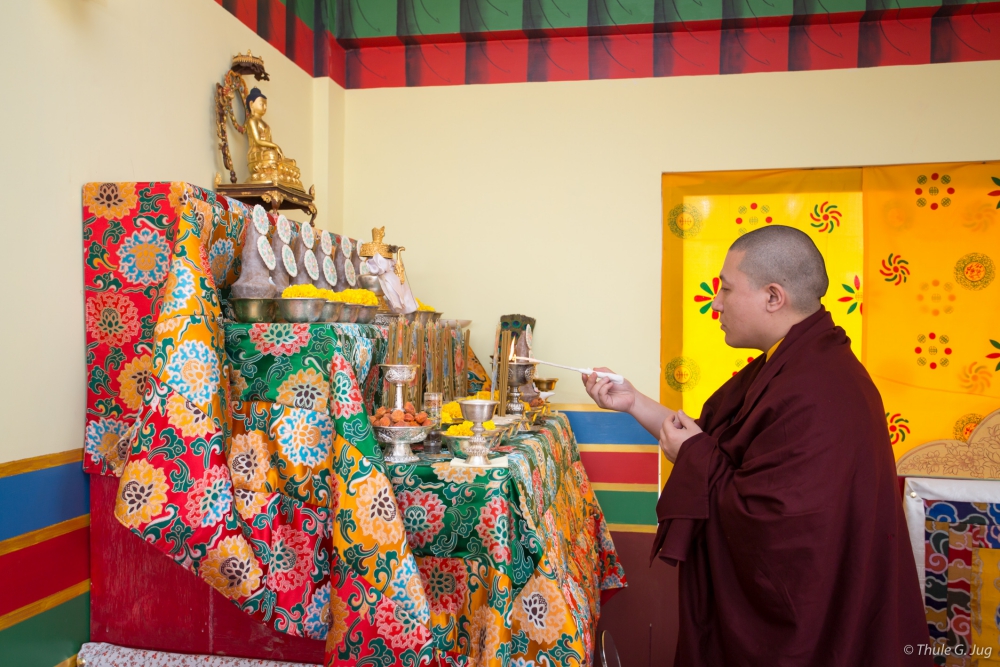

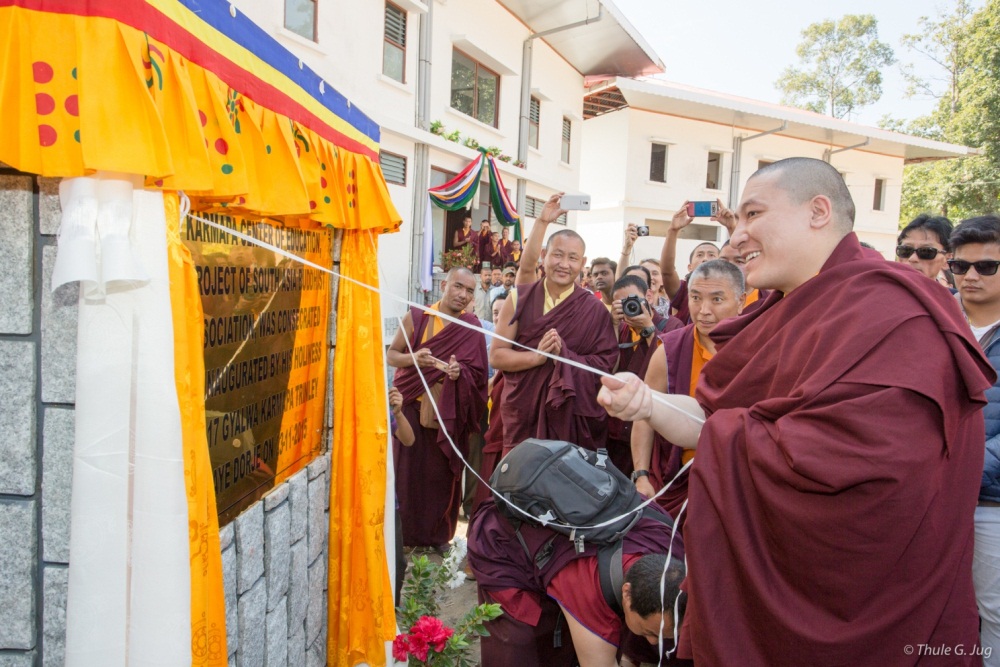
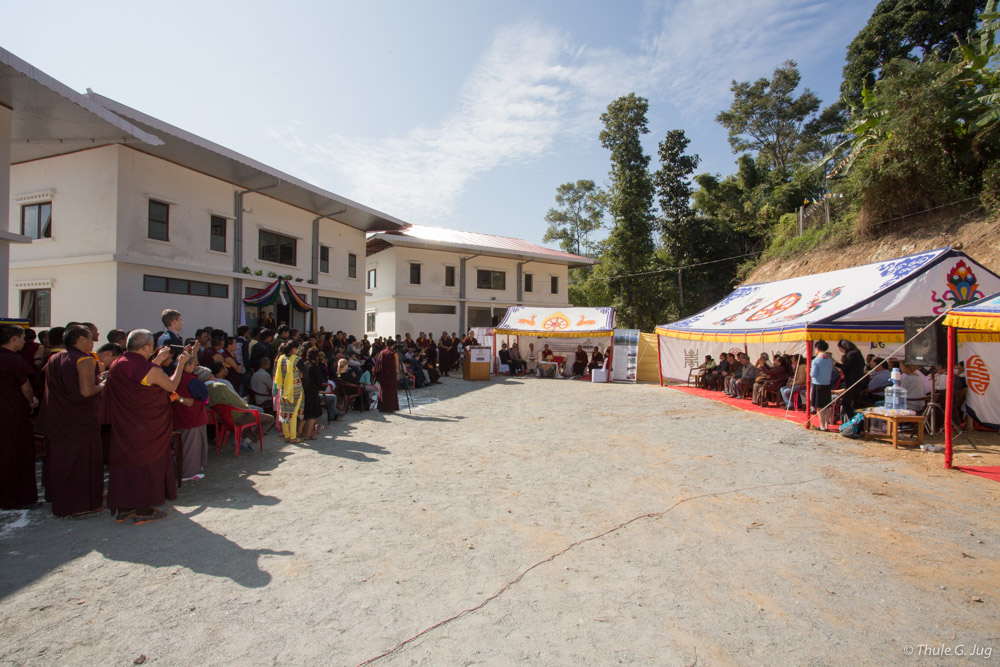
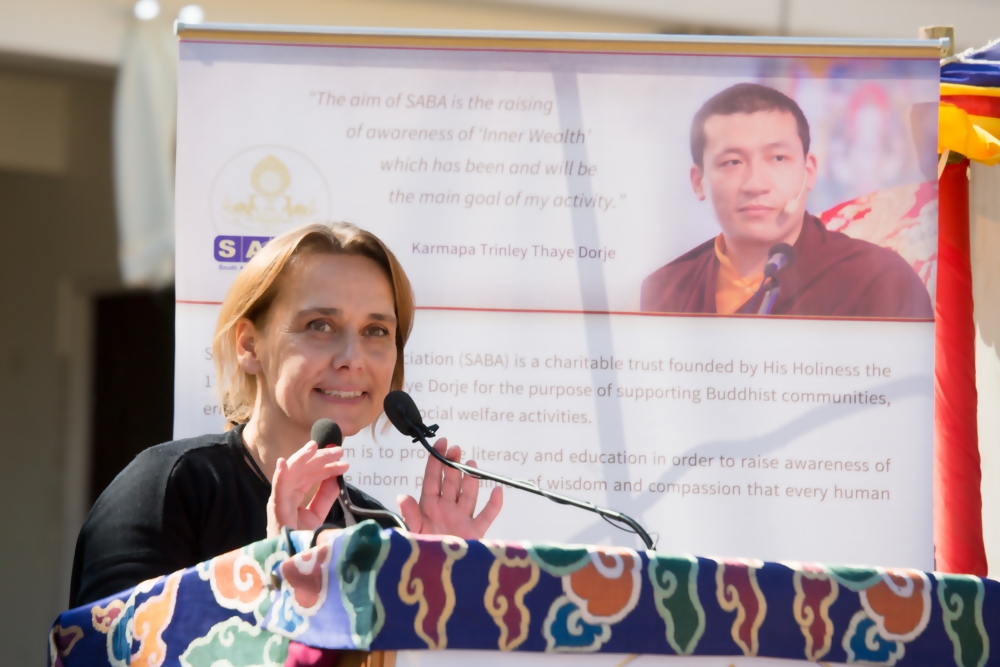
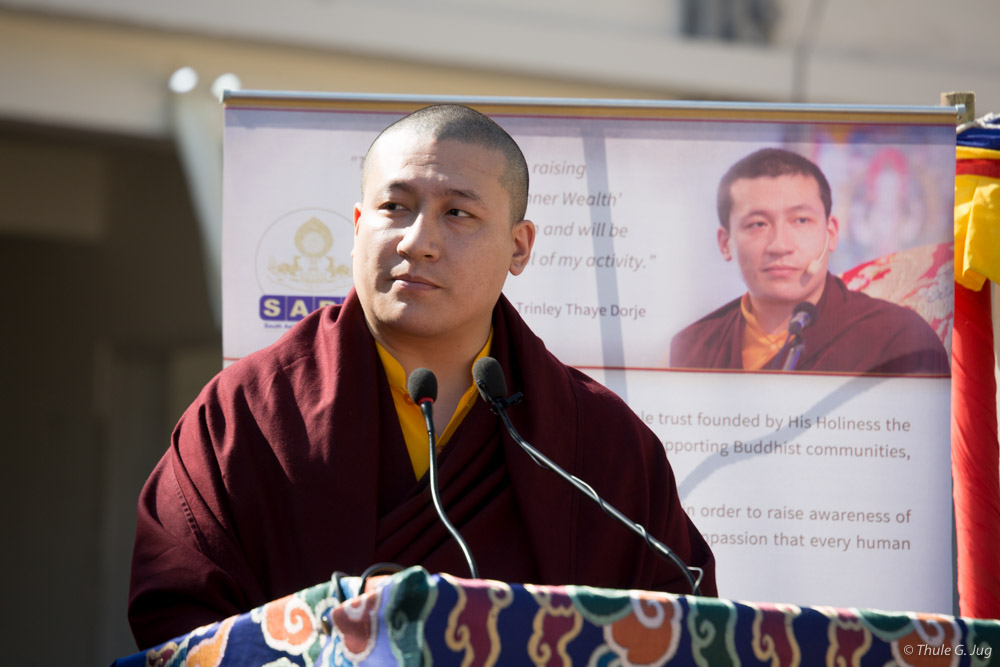
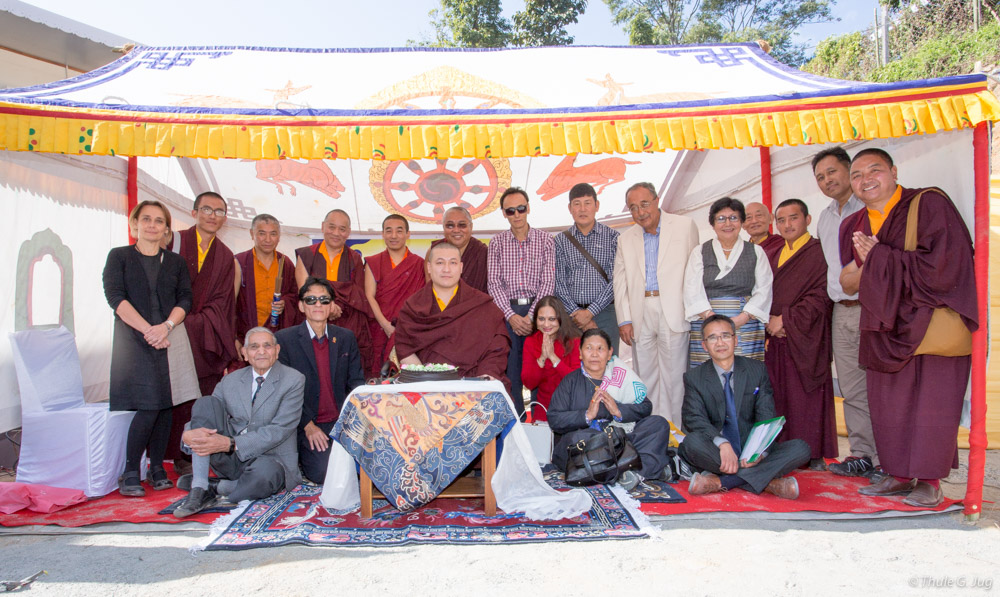
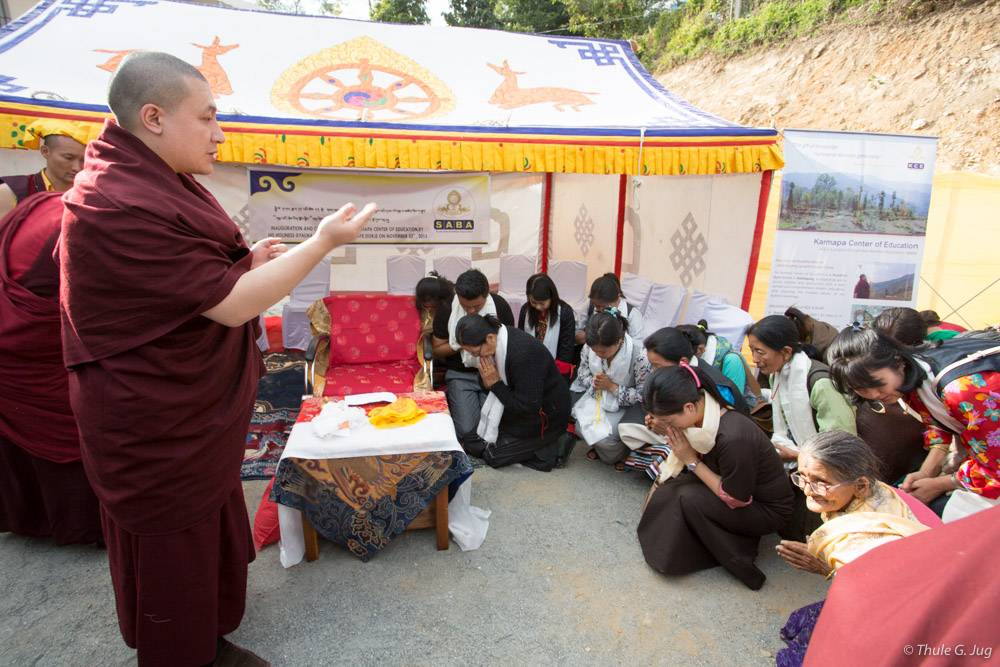
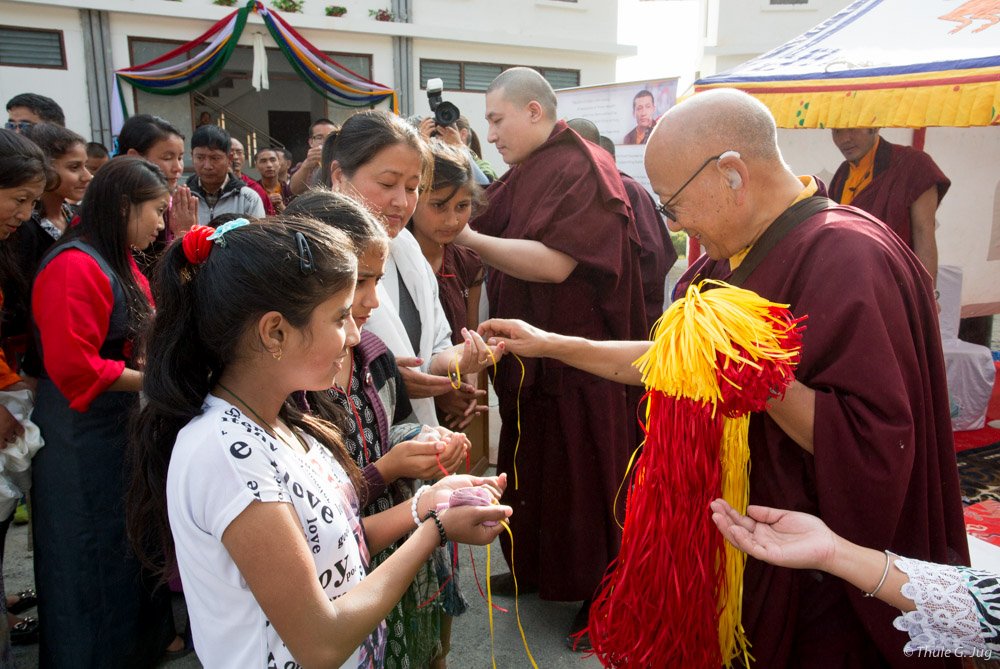

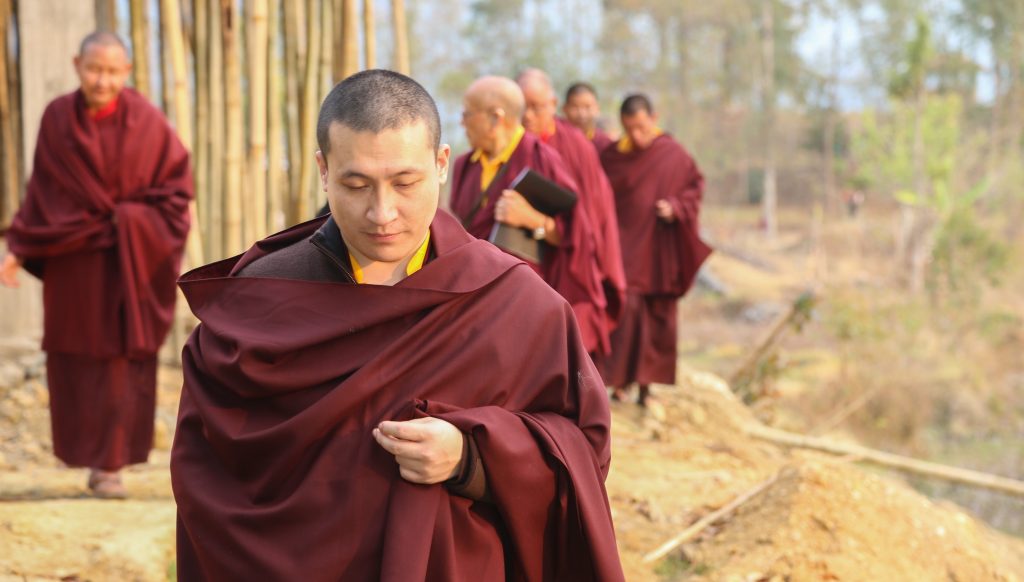

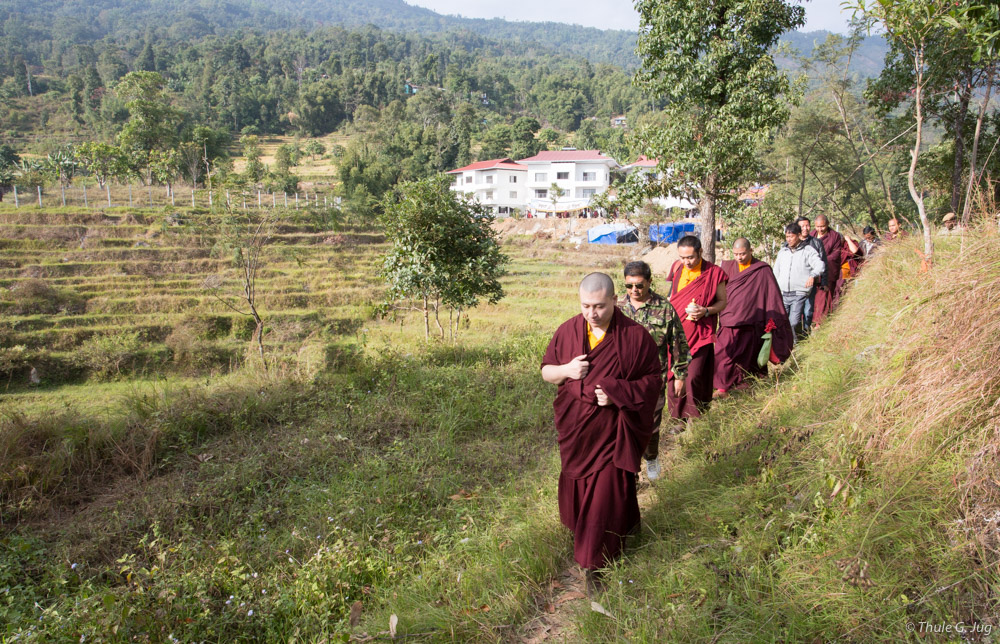
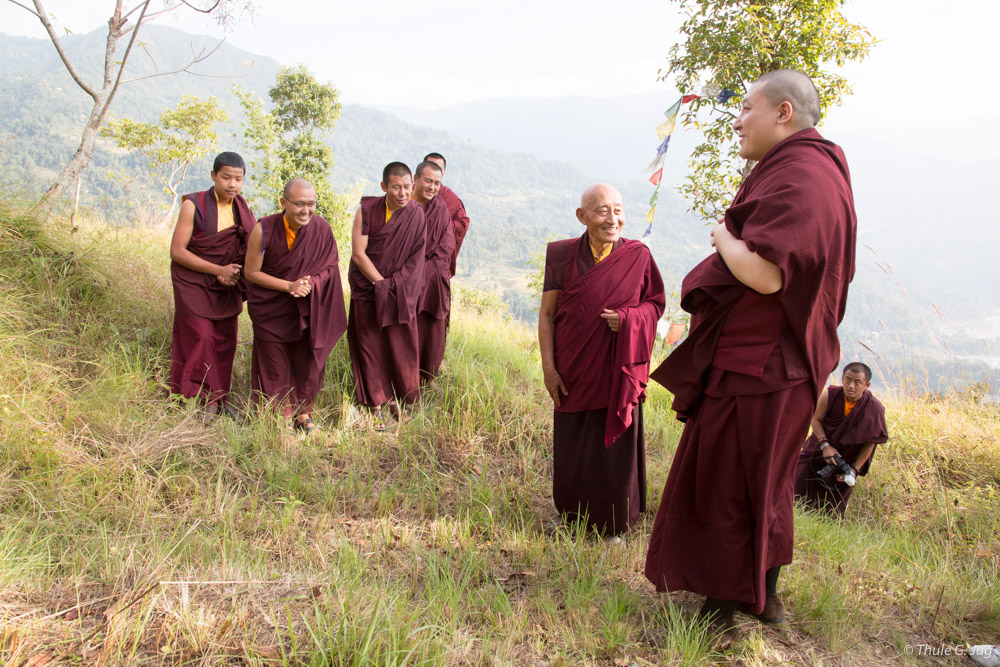

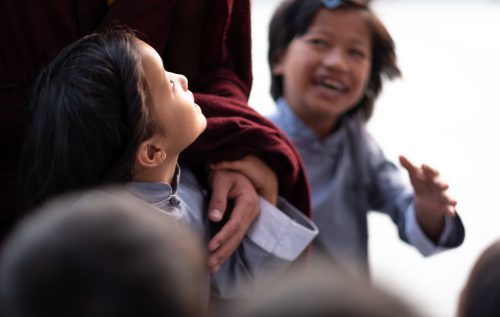
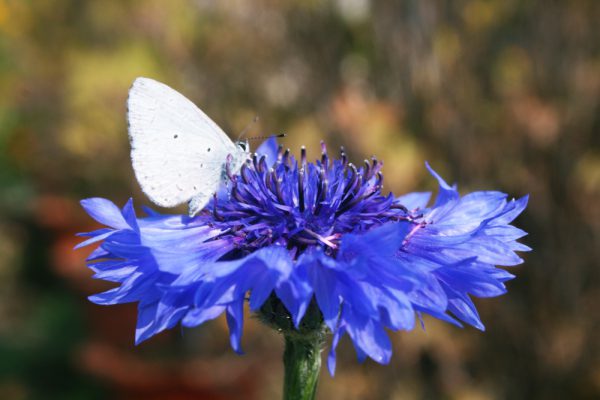
 Our curriculum can be illustrated through three pillars.
Our curriculum can be illustrated through three pillars. 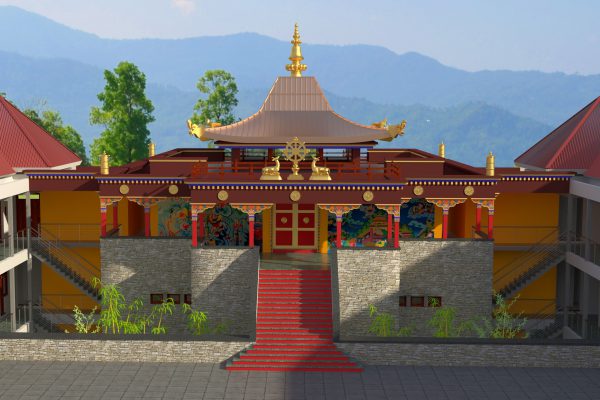 The primary section of KCE provides facilities for 120 students, a monastic Sangha, and guest teachers from all over the world.
The primary section of KCE provides facilities for 120 students, a monastic Sangha, and guest teachers from all over the world. 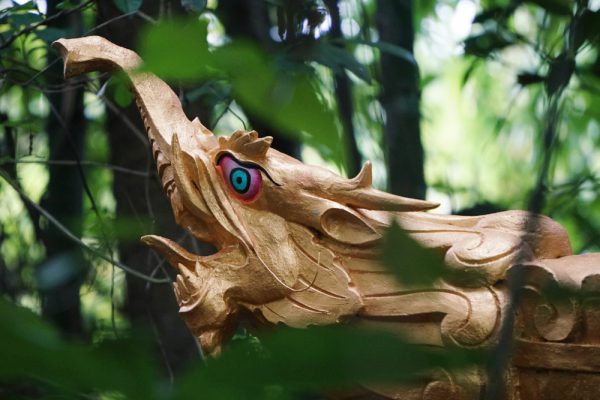 Become a Patron of the Vision. The Karmapa Center of Education is growing thanks to the generous support of friends from all over the world. If you would like to
Become a Patron of the Vision. The Karmapa Center of Education is growing thanks to the generous support of friends from all over the world. If you would like to 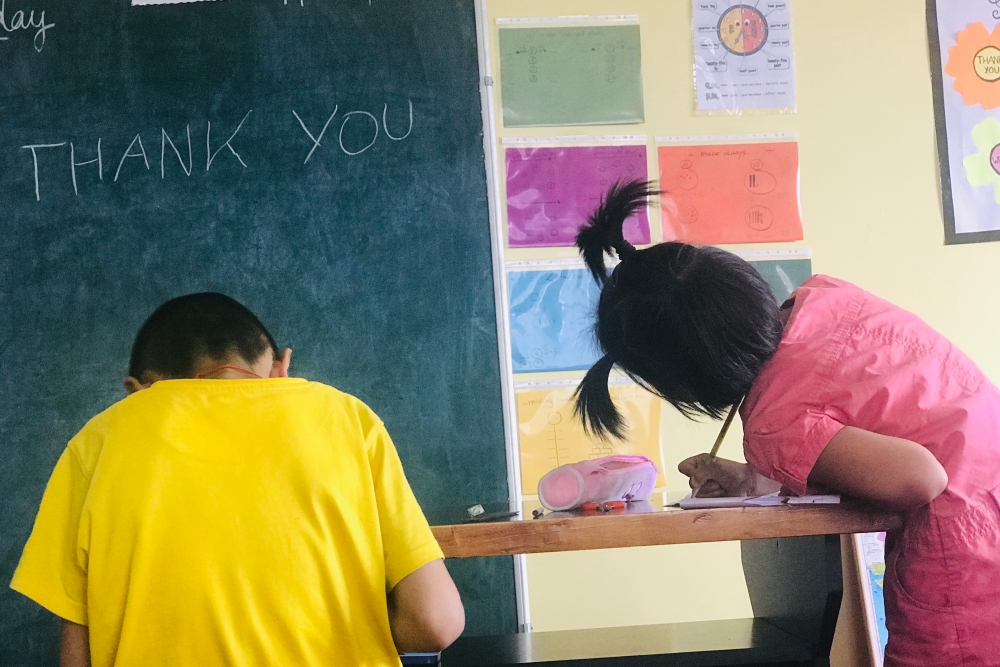 Work at KCE – we are looking for primary school teachers or people with experience in working with children.
Work at KCE – we are looking for primary school teachers or people with experience in working with children. 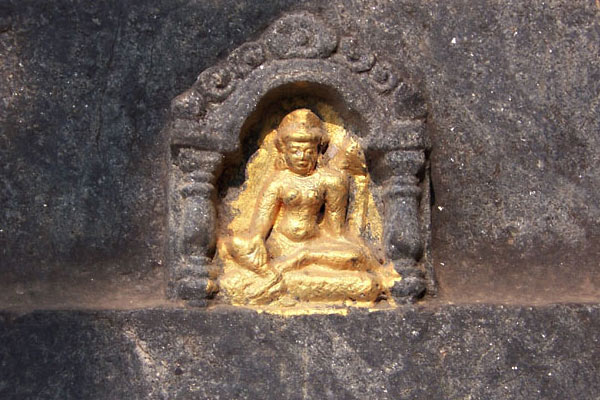 About Us: We are a group of friends from all over the world supporting the great vision of KCE.
About Us: We are a group of friends from all over the world supporting the great vision of KCE. 